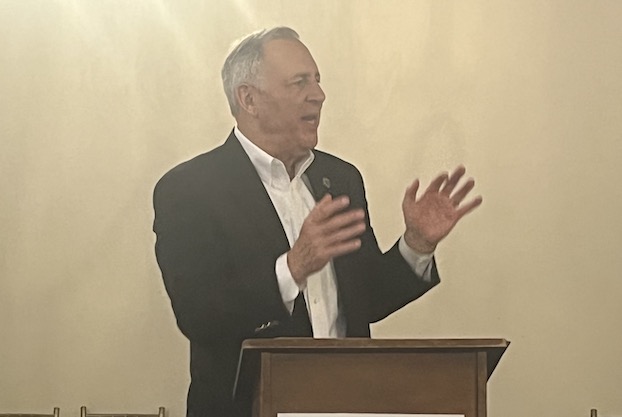Department of Health has plan to cut costs for hepatitis C
Published 6:00 pm Wednesday, July 10, 2019
The Louisiana Department of Health is on a mission to cut costs for hepatitis C treatment.
Last month, the organization inked a deal with drug maker Asegua Therapeutics that will allow the state unlimited access to a generic version of their hepatitis C drug Epclusa at an annual cost not to exceed $58 million for five years.
Trending
Dr. Rebekah Gee, secretary of the Department of Health, told The Advocate newspaper the state’s goal is to treat 31,000 of the 39,000 hepatitis C patients in the state’s Medicaid program and prison system by the end of 2024.
The treatment process, which is said to cure about 98 percent of hepatitis C patients, involves taking a pill daily for 12 weeks.
“Hepatitis C is the leading infectious disease killer of our time, and for tens of thousands a cure is out of reach,” Gee has previously said. “The strong support for a subscription model confirms that we are within reach of a breakthrough in public health that will lead in the long term to saving lives.”
Plus, the sooner a person gains access to the treatment, the smaller the chance they will infect others. It’s estimated that about 18,000 people across the country die from hepatitis C each year. In Louisiana, that number is 150.
Although those who have private insurance generally have access to the drug, the drug is not typically available for most low-income patients. Medicaid covers the drug only when a patient is in the final stages of hepatitis C.
The yearly value of the treatment agreement will depend on when people with the disease are treated, according to The Advocate. If the state treats all 31,000 patients it has identified at a steady rate over five years, the cost to treat each person could be around $9,350.
Trending
The medicine Asegua typically provides costs about $24,000 per patient. To break even, the state would have to treat at least 2,400 people per year.
Without the deal, it is estimated it would cost the state $764 million to treat about the same number of patients.
If successful, The Advocate said the state plans to link the program with other services like needle exchange programs, HIV testing and addiction services.
The treatment agreement goes into effect July 15 and we hope the state is successful with this innovative plan.





